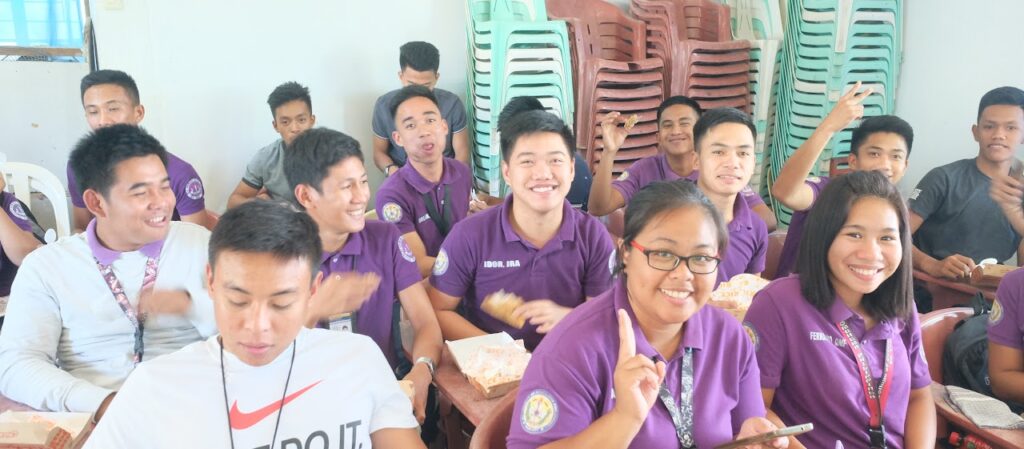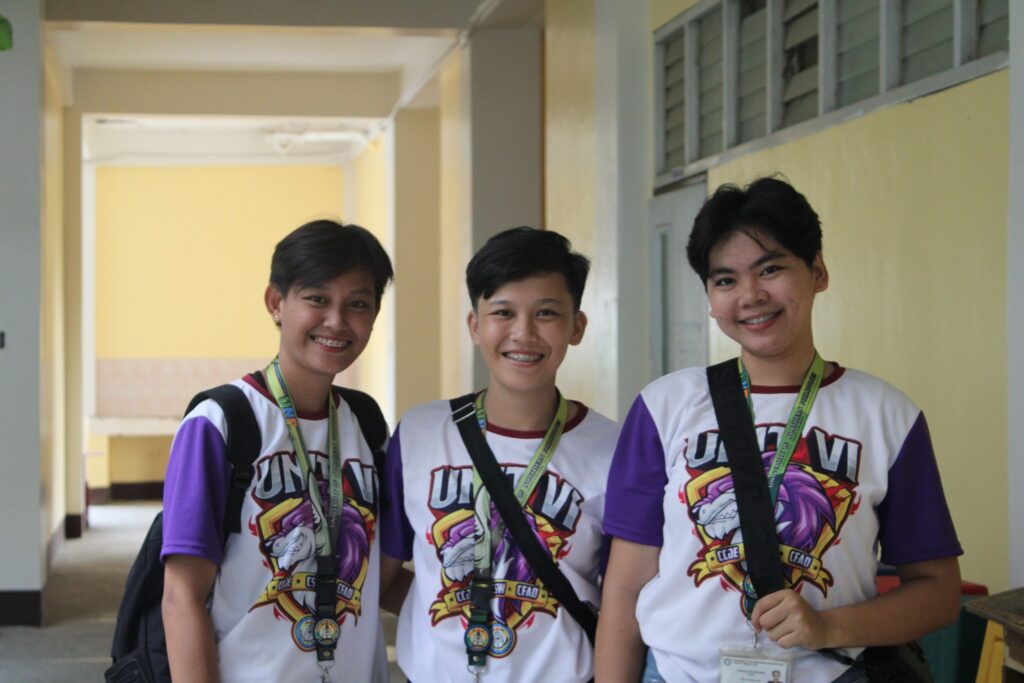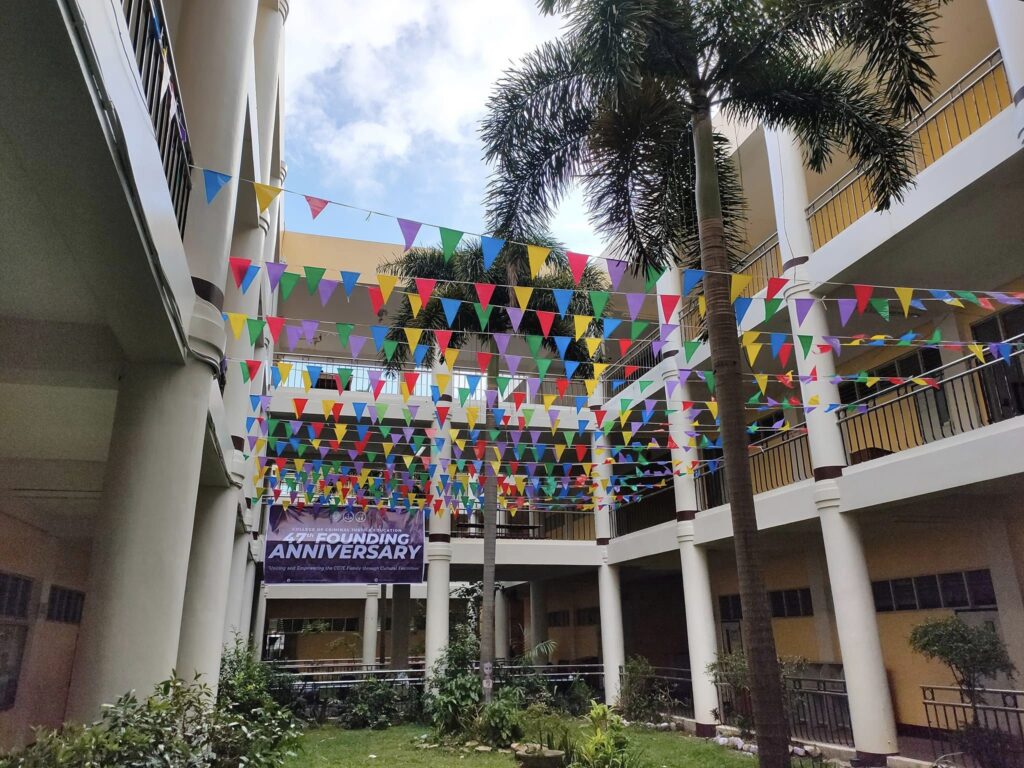About Us
The College traces its roots in the founding of the Institute of Criminology of the University of Northern Philippines in School Year 1976-1977. Its restricted curriculum, as approved by the Ministry of Education Culture, and Sports (MECS), through Order No. 22, s. 1983, was formulated by the National Police Commission (NAPOLCOM), the Philippine Constabulary/Integrated National Police (PC/INP), and the Bureau of Higher Education (BHE), now the Commission on Higher Education (CHED). The College’s foundation anniversary is usually celebrated in September every year.
Due to the demand of time, the College saw the need to introduce new programs in support of Republic Act No. 7722 otherwise known as the ‘Higher Education Act of 1994.” As such, the College supports the vision that “there shall be a rationalized Criminal Justice Education (CJE) in the country that shall include degree programs in Criminology, Law Enforcement Administration, Correctional Administration, Industrial Administration, and Forensic Science, among others, in order to meet the demands of globalization as it impacts on the rapidly on the rapidly changing and interdisciplinary fields of Criminal Justice.”
In 2012, the College of Criminology was renamed as the College of Criminal Justice Education and Social Work. The College then offered three programs, namely: Bachelor of Science in Criminology (BS Crim), Bachelor of Science in Law Enforcement Administration (BS LEA), and Bachelor of Science in Social Work (BSSW). Due to tremendous increase of enrolees in the Social Work program, the need for separation was granted on December 1, 2015. The two programs (BSCrim and BSLEA) remained in the College of Criminal Justice Education. Notably, the BS Crim program succeeded in accreditation visits by the Accrediting Agency of Chartered Colleges and Universities in the Philippines (AACCUP), Inc. It passed Level I in 2012, Level II in 2014, and Level III in 2019.
On July 14, 2015, the College was evaluated by the CHEDRO1-Quality Assessment Team for the offering of Master of Science in Criminal Justice Education with specialization in Criminology. Thus, in 2016, the Master of Science in Criminal Justice with Specialization in Criminology was offered.
Through the years, the College has produced topnotchers in the Criminology Board Examinations. Most notable among them are Jane Roxanne Damian (4th placer, 2011), Richard R. Davalos (2nd placer, 2007), and Juanito Cabang (8th placer, 1989). The College has likewise received several awards from the Professional Criminologists Association of the Philippines Inc. (PCAP, R01 Chapter) for consistently producing regional topnotchers and the most number of passers in the region. Recently, the College has been declared the Overall Champion for seven times and twice as first runner-up in the Intramurals of the University.
At present, the College continues to grow. The number of enrolment every year increases because the police profession is very much in demand today. It can be said that the College is the number one source of manpower for the police service in the northern part of the country.




Goal
Objectives
1. foster the values of leadership, integrity, accountability and responsibility among students while serving their fellowmen, community and country;
2. prepare students for careers in crime prevention, law enforcement, scientific crime detection, and correctional administration; and
3. develop in students the skills in research and inquiry along the nature, causes, treatment or punishment of criminal behavior and how criminal justice agencies respond to crime, criminals and victims; and
4. be self-reliant
History
The Bachelor of Science in Criminology is a four year-program. The curriculum is work oriented. What are incorporated in the curriculum are subjects chosen on the basis of actual needs and priorities to make it responsive to the manpower requirements of law enforcement as well as of private organizations requiring police service, a day-to-day concern, person-to-person, and person-to-community involvement in which social mores, needs, and problems come into full play.
The restricted curriculum, as approved by the Ministry of Education Culture, and Sports (MECS), now the Department of Education (DepEd), thru implementing Order No. 22, s. 1983, was formulated by the National Police Commission (NAPOLCOM), the Philippine Constabulary / Integrated National Police (PC/INP), and the Bureau of Higher Education (BHE), now the Commission on Higher Education (CHED). Its foundation anniversary is usually celebrated on the month of September every year.
In 2012, the College of Criminology was changed to College of Criminal Justice Education and Social Work. The College offered three programs, namely: Bachelor of Science in Criminology, Bachelor of Science in Law Enforcement Administration, and Bachelor of Science in Social Work. Due to the tremendous increase of enrollees in the Social Work program, the need for separation was granted on December 1, 2015. BS Criminology and BS Law Enforcement Administration remained with the College of Criminal Justice Education.
On November 13-16, 2012, the Criminology program was assessed by the Accrediting Agency of Chartered Colleges and Universities in the Philippines (AACCUP), Inc. for Level I accreditation and passed. Through the enthusiasm of the entire work force of the College, the Criminology program was submitted for Level II-Re-accreditation last August 13-16, 2014. It passed again the survey visit.
On July 14, 2015, the College was evaluated by the CHEDRO1-Quality Assessment Team for the offering of Master of Science in Criminal Justice Education with specialization in Criminology. As the program continued to be offered, the first batch graduated in 2019. With the full support of the administration and commitment of the workforce of the College, the Master of Science in Criminal Justice with Specialization in Criminology was submitted for Level 1 to AACCUP for evaluation on July 25-28, 2021. The passing mark for Level I is effective until July 2024.
The BS Criminology program was evaluated for Level III Phase 2 last June 7-9, 2021 and was recommended by the Board of AACCUP to its Level III Re-Accredited status effective June 16, 2021-June 15, 2025.
Several prominent individuals became the Deans/Directors/Officers-in-Charge since its existence, to wit: Dr. Bernard Ramirez, Dr. Francisco Macanas, Mr. Delfin Artajos, Mr. Placido Unciano, Dr. Witerico Balbuena, Dr. Lauro Tacbas, Mr. Trinidad Rojo, and Dr. Sina Bestre (incumbent).
Faculty members are engaged in activities that enhance their professional development. To date, nine faculty of the College have finished their PhD in Criminology/Criminal Justice.
The College is proud to say that it has produced national topnotchers in the Criminologist Licensure Examination, to wit: Jane Roxanne Damian–4th placer (2011), Richard R. Davalos–2nd placer (2007), King Julius Crisologo–18th placer (2003), Wilter Cris Ayunon–19th placer (2001), Reynaldo Serafica–12th placer (2000), William Ponce–13th placer (1997), and Juanito Cabang–8th placer (1989).
Further, the University of Northern Philippines has received several awards from the Professional Criminologists Association of the Philippines Inc. (PCAP) Region I as follows: Top 3 performing school and producer of the greatest number of passers in Region I in the December 2018 Criminologist Licensure Examination and Top 2 performing school and producers of the greatest number of passers in Region I in the December 2019 Criminologist Licensure Examination.
In 2016, the Professional Criminologists Association of the Philippines Inc. (PCAP) Region I recognized the regional topnotchers. Three from the College garnered places, namely: Top 2–Rianne Angeli L.Piano; 7th placer–Jesica A. Soller and Ismael V. Rafanan. In 2017, two were recognized as placers, namely: Top 1–Ivy Rose L. Racsa and Top 9–Mark Christian R.Tejada. In 2018, two garnered spots, namely: Top 5–Marcel A. Catayna and Top 10–Edward Paul A. Cabanit. Similarly, in 2019, the topnotchers were Jayser Paul Padua (Top 1), Myra S. Silvania (Top 3), Jholan Mark Imperio (Top 4), Christian Ace P. Ubasa (Top 6), Bryan Jerico D. Tacuyog (Top 7), and Janine Grace C. Balisi (Top 8). In 2020, the topnotchers were Raymund A. Alcos (Top 2), and in 2021 were Jay Lord C. Pestejo (Top 1) and Czarina S. Vicente (Top 7).
In the field of sports activities, the college was awarded seven times as the overall champion in the Intramurals at the University. This shows that the College does not only excel in academics but also in sports.
The college continues to grow. The number of student enrolment every year increases because the profession is very much in demand today. It can be said that the College is the number one source of manpower for the PNP, BFP, BJMP, and other agencies and institutions in the northern part of the country.
Our Extension Services
OFFICE OF THE PRESIDENT
-
University of Northern Philippines
3rd Floor- Admin Building, Tamag, Vigan, Ilocos Sur - (077) 644-2261
- op@unp.edu.ph
Registrar's Office
- registrar@unp.edu.ph
- UNP Registrar's Office
Admission Services
- admissionservices@unp.edu.ph
- UNP Admission Services
Public Information Office
- pioffice@unp.edu.ph
- University of Northern Philippines
Guidance and Counseling Services
- guidance@unp.edu.ph
- University of Northern Philippines
